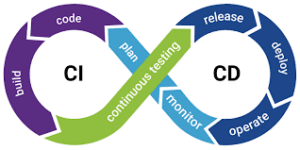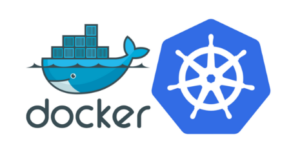Essential Tools and Skills Every DevOps Professional Should Master
Introduction
 DevOps has emerged as a crucial methodology in the software development lifecycle, bridging the gap between development and operations teams. It emphasizes collaboration, automation, and continuous delivery to enhance the efficiency and quality of software development processes. To excel in this rapidly evolving field, DevOps professionals must acquire a comprehensive set of tools and skills.
DevOps has emerged as a crucial methodology in the software development lifecycle, bridging the gap between development and operations teams. It emphasizes collaboration, automation, and continuous delivery to enhance the efficiency and quality of software development processes. To excel in this rapidly evolving field, DevOps professionals must acquire a comprehensive set of tools and skills.
In this blog post, we will explore some essential tools and skills that every DevOps professional should know.
Version Control Systems (VCS)
 Version control systems are fundamental tools for managing source code and enabling collaboration among team members. DevOps professionals should be proficient in using popular VCS platforms like Git. They should understand concepts such as branching, merging, and resolving conflicts to effectively manage code repositories and ensure seamless integration between teams.
Version control systems are fundamental tools for managing source code and enabling collaboration among team members. DevOps professionals should be proficient in using popular VCS platforms like Git. They should understand concepts such as branching, merging, and resolving conflicts to effectively manage code repositories and ensure seamless integration between teams.
Continuous Integration/Continuous Delivery (CI/CD)
 CI/CD automates the process of building, testing, and deploying software, enabling faster and more reliable releases. DevOps professionals should have hands-on experience with popular CI/CD tools like Jenkins, GitLab CI/CD, or CircleCI. They should be able to configure and customize pipelines, implement automated tests, and manage deployment strategies.
CI/CD automates the process of building, testing, and deploying software, enabling faster and more reliable releases. DevOps professionals should have hands-on experience with popular CI/CD tools like Jenkins, GitLab CI/CD, or CircleCI. They should be able to configure and customize pipelines, implement automated tests, and manage deployment strategies.
Configuration Management
 Configuration management tools help maintain consistency across various environments and ensure reproducibility. DevOps professionals should be familiar with tools like Ansible, Puppet, or Chef to automate infrastructure provisioning, configuration, and management. Proficiency in writing playbooks or recipes and managing infrastructure as code is essential for efficient deployments.
Configuration management tools help maintain consistency across various environments and ensure reproducibility. DevOps professionals should be familiar with tools like Ansible, Puppet, or Chef to automate infrastructure provisioning, configuration, and management. Proficiency in writing playbooks or recipes and managing infrastructure as code is essential for efficient deployments.
Containerization and Orchestration
 Containerization has revolutionized application deployment, and DevOps professionals must be well-versed in containerization platforms like Docker. They should have a strong understanding of containerization concepts, building Docker images, and managing container lifecycles. Additionally, knowledge of container orchestration tools like Kubernetes is crucial for scaling and managing containerized applications.
Containerization has revolutionized application deployment, and DevOps professionals must be well-versed in containerization platforms like Docker. They should have a strong understanding of containerization concepts, building Docker images, and managing container lifecycles. Additionally, knowledge of container orchestration tools like Kubernetes is crucial for scaling and managing containerized applications.
Infrastructure as Code (IaC)
 IaC allows for the provisioning and management of infrastructure through code, providing consistency and scalability. DevOps professionals should be proficient in tools like Terraform or CloudFormation to automate infrastructure provisioning across various cloud platforms. Understanding infrastructure design patterns, writing reusable templates, and managing infrastructure deployments using code are critical skills.
IaC allows for the provisioning and management of infrastructure through code, providing consistency and scalability. DevOps professionals should be proficient in tools like Terraform or CloudFormation to automate infrastructure provisioning across various cloud platforms. Understanding infrastructure design patterns, writing reusable templates, and managing infrastructure deployments using code are critical skills.
Cloud Platforms
 With the growing adoption of cloud computing, familiarity with major cloud platforms like Amazon Web Services (AWS), Microsoft Azure, and Google Cloud Platform (GCP) is essential. Understanding cloud services, infrastructure, and deployment models allows DevOps professionals to leverage cloud capabilities effectively.
With the growing adoption of cloud computing, familiarity with major cloud platforms like Amazon Web Services (AWS), Microsoft Azure, and Google Cloud Platform (GCP) is essential. Understanding cloud services, infrastructure, and deployment models allows DevOps professionals to leverage cloud capabilities effectively.
Monitoring and Logging
 Monitoring and logging are essential components of a reliable DevOps environment. Professionals should have hands-on experience with monitoring tools like Prometheus, Nagios, or Datadog to track performance metrics, detect anomalies, and ensure system availability. Additionally, knowledge of log aggregation and analysis tools like ELK Stack (Elasticsearch, Logstash, and Kibana) or Splunk is essential for troubleshooting and debugging.
Monitoring and logging are essential components of a reliable DevOps environment. Professionals should have hands-on experience with monitoring tools like Prometheus, Nagios, or Datadog to track performance metrics, detect anomalies, and ensure system availability. Additionally, knowledge of log aggregation and analysis tools like ELK Stack (Elasticsearch, Logstash, and Kibana) or Splunk is essential for troubleshooting and debugging.
Scripting and Programming Languages
 DevOps professionals should have strong scripting and programming skills to automate tasks and build custom tools. Proficiency in scripting languages like Bash or Python is valuable for writing automation scripts and creating robust pipelines. Knowledge of programming languages like Java, Ruby, or Go can be beneficial for developing custom applications and plugins.
DevOps professionals should have strong scripting and programming skills to automate tasks and build custom tools. Proficiency in scripting languages like Bash or Python is valuable for writing automation scripts and creating robust pipelines. Knowledge of programming languages like Java, Ruby, or Go can be beneficial for developing custom applications and plugins.
Linux
 Linux is the most popular operating system for servers, and it is also used by many cloud providers. As a result, DevOps Engineers who work with servers and cloud environments will need to have a basic understanding of Linux. A DevOps engineer equipped with Linux knowledge can effectively manage system configurations, automate deployment processes, troubleshoot issues, and optimize performance.
Linux is the most popular operating system for servers, and it is also used by many cloud providers. As a result, DevOps Engineers who work with servers and cloud environments will need to have a basic understanding of Linux. A DevOps engineer equipped with Linux knowledge can effectively manage system configurations, automate deployment processes, troubleshoot issues, and optimize performance.
Collaboration and Communication
 Efficient communication and collaboration are essential in DevOps teams. Familiarity with collaboration tools like Jira, Confluence, or Slack facilitates effective project management, documentation, and communication. Additionally, proficiency in using version control systems for collaboration and code review is crucial for successful teamwork.
Efficient communication and collaboration are essential in DevOps teams. Familiarity with collaboration tools like Jira, Confluence, or Slack facilitates effective project management, documentation, and communication. Additionally, proficiency in using version control systems for collaboration and code review is crucial for successful teamwork.
Conclusion
Being a successful DevOps professional requires a diverse skill set and familiarity with a range of tools. The tools and skills mentioned above form the foundation for DevOps practices and empower professionals to automate processes, enhance collaboration, and drive efficient software delivery. By mastering these tools and skills, DevOps professionals can contribute to the continuous improvement of development and operations processes, ultimately leading to faster innovation, better software quality, and improved customer satisfaction.
By – Aman Kumar